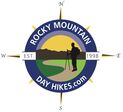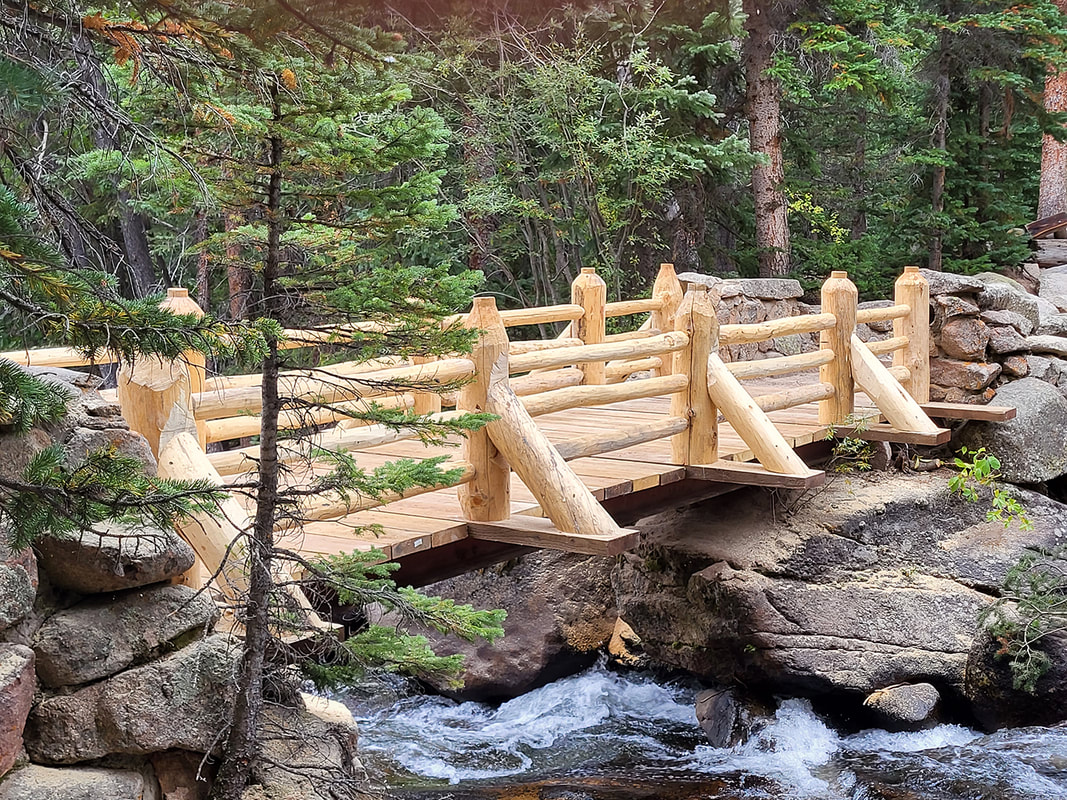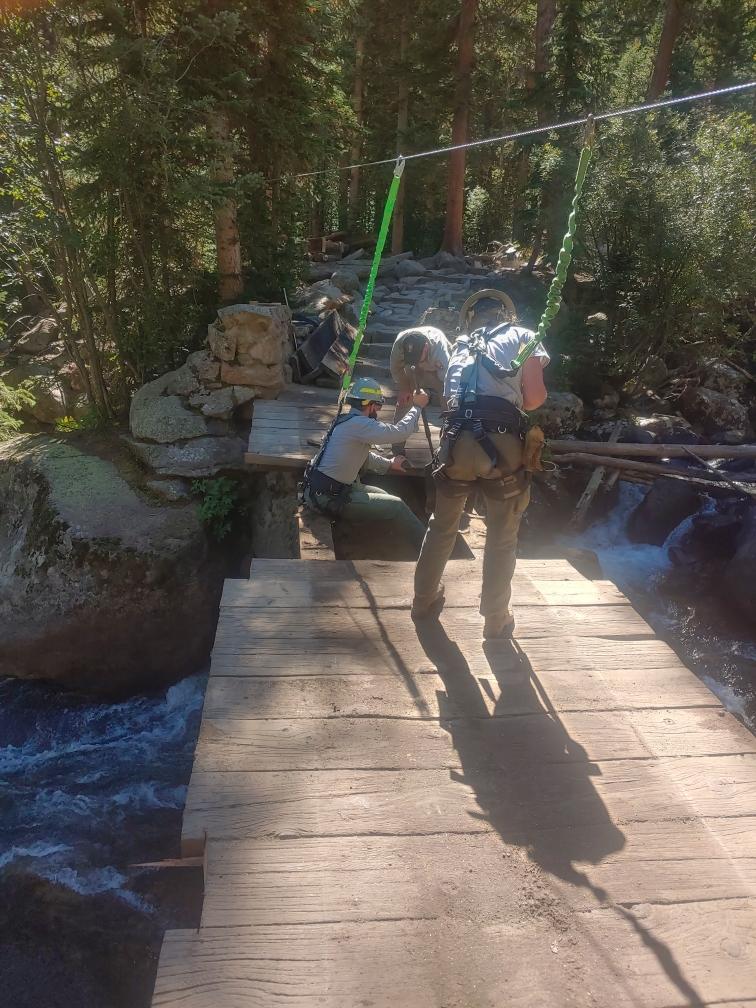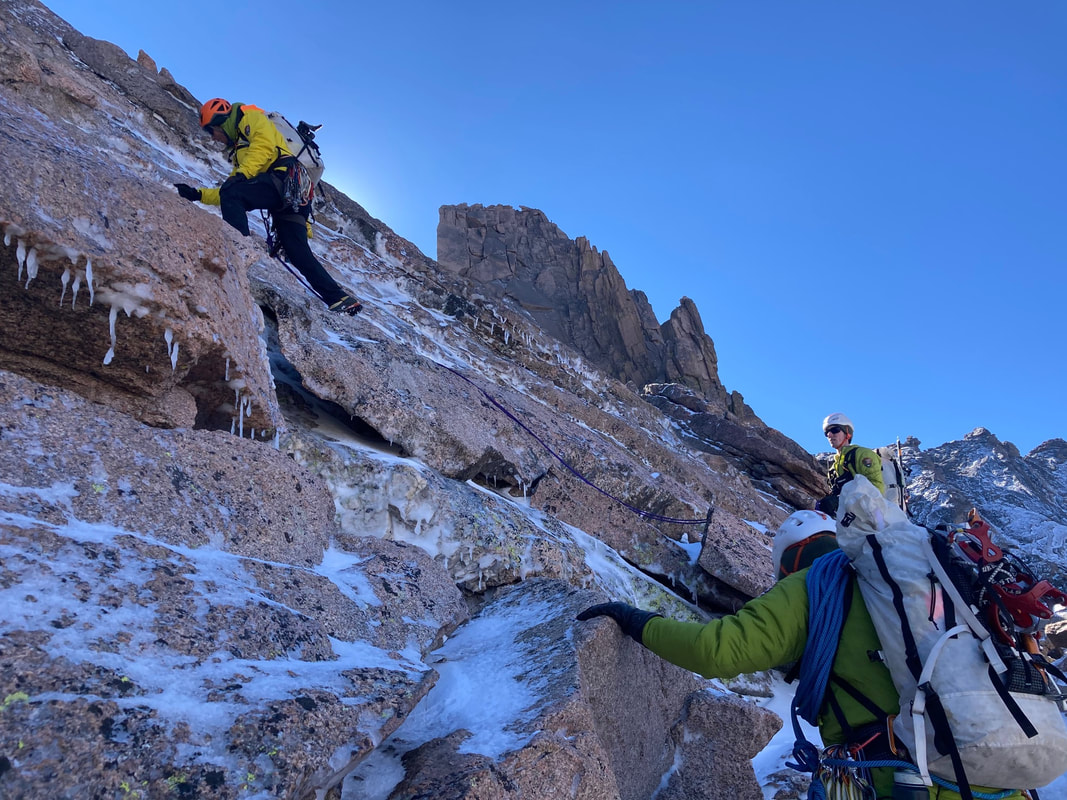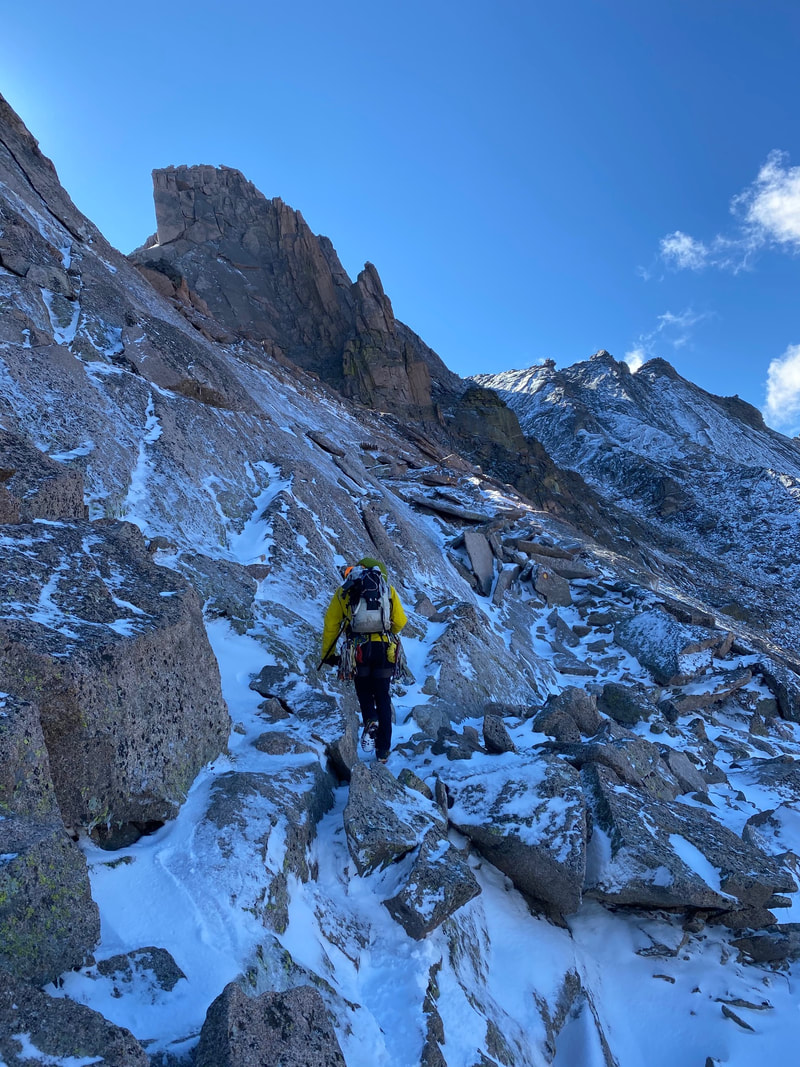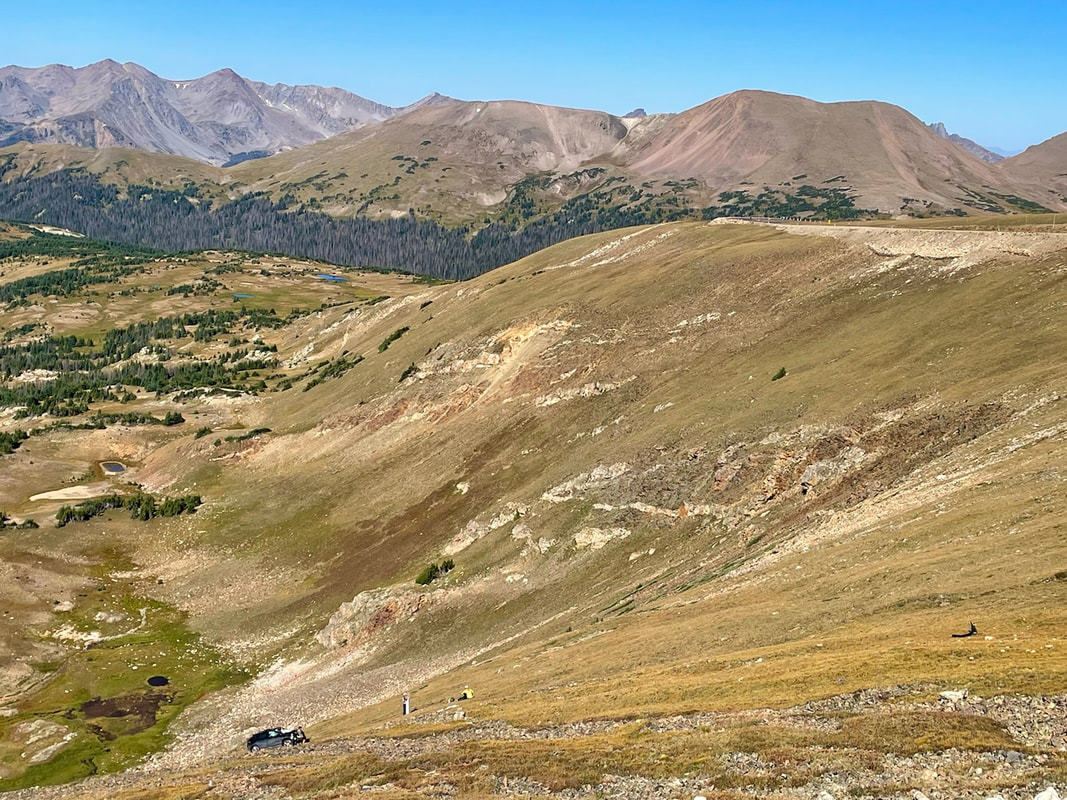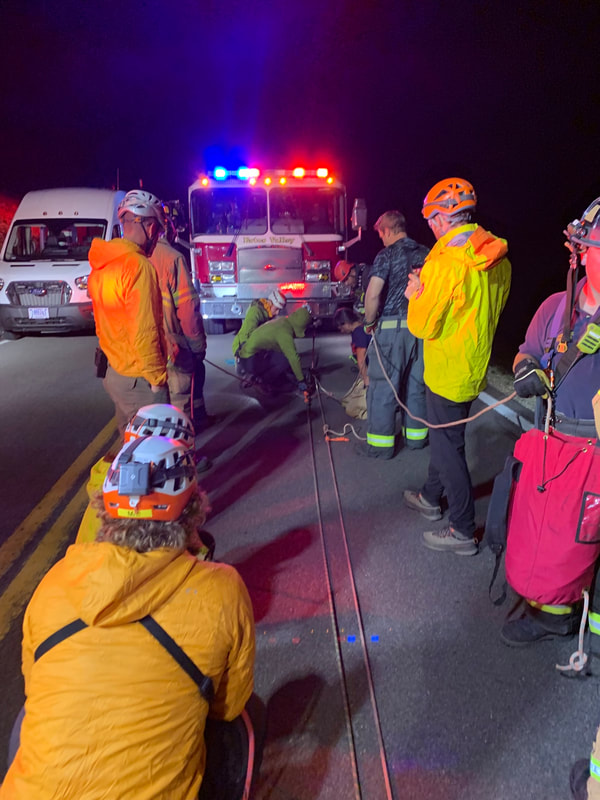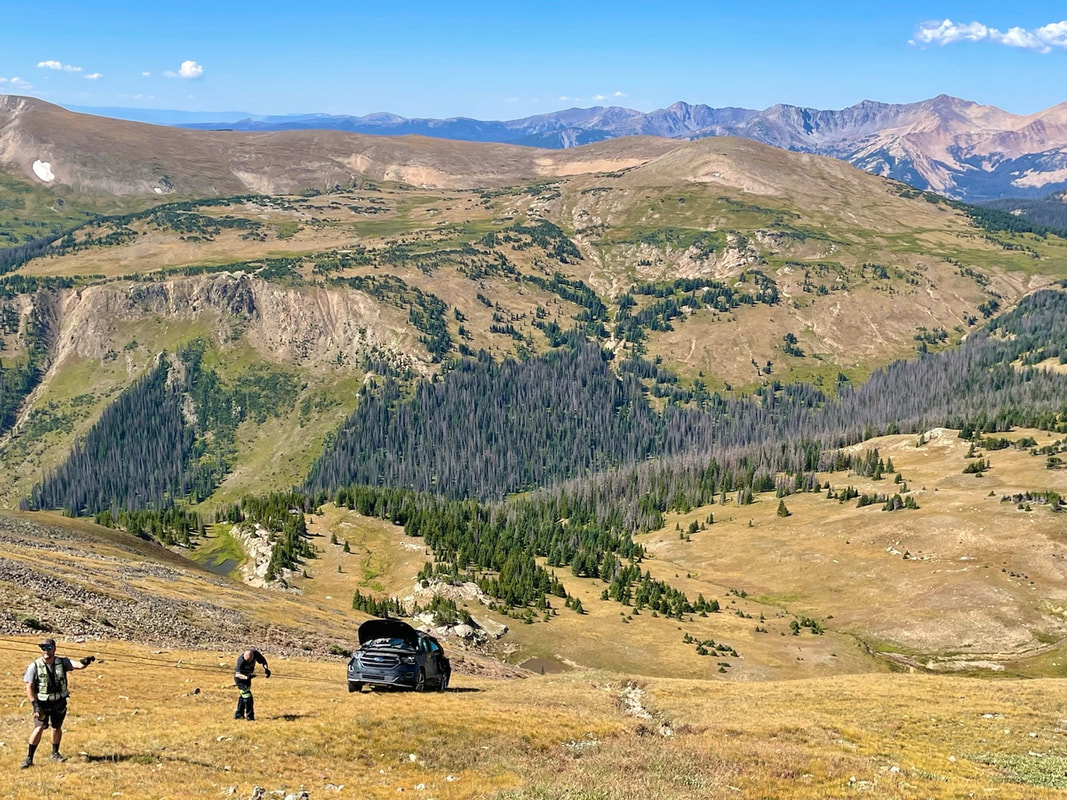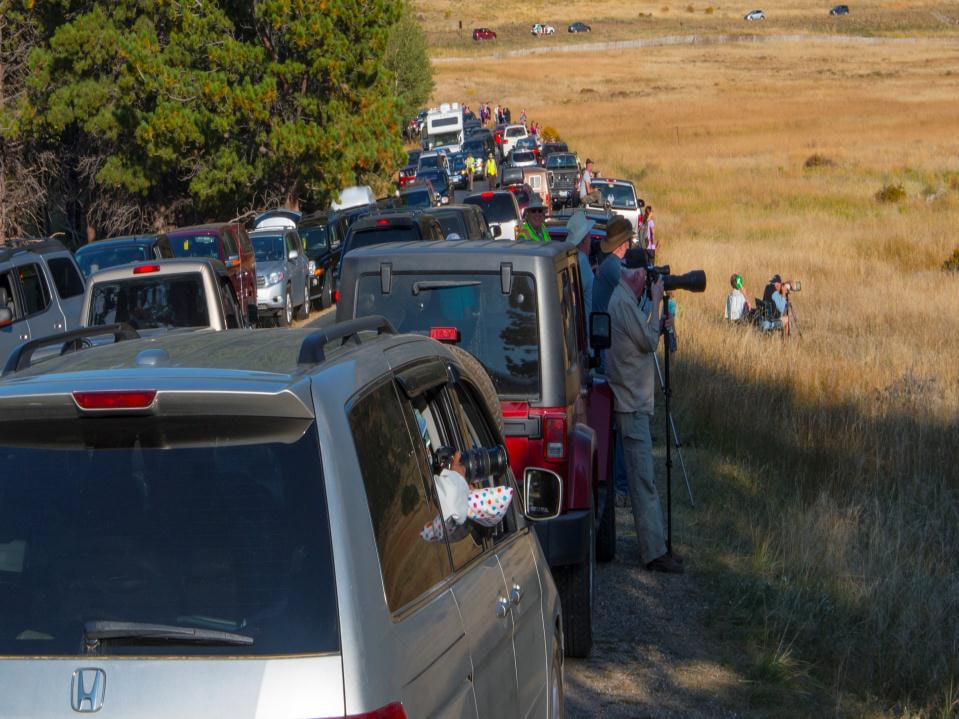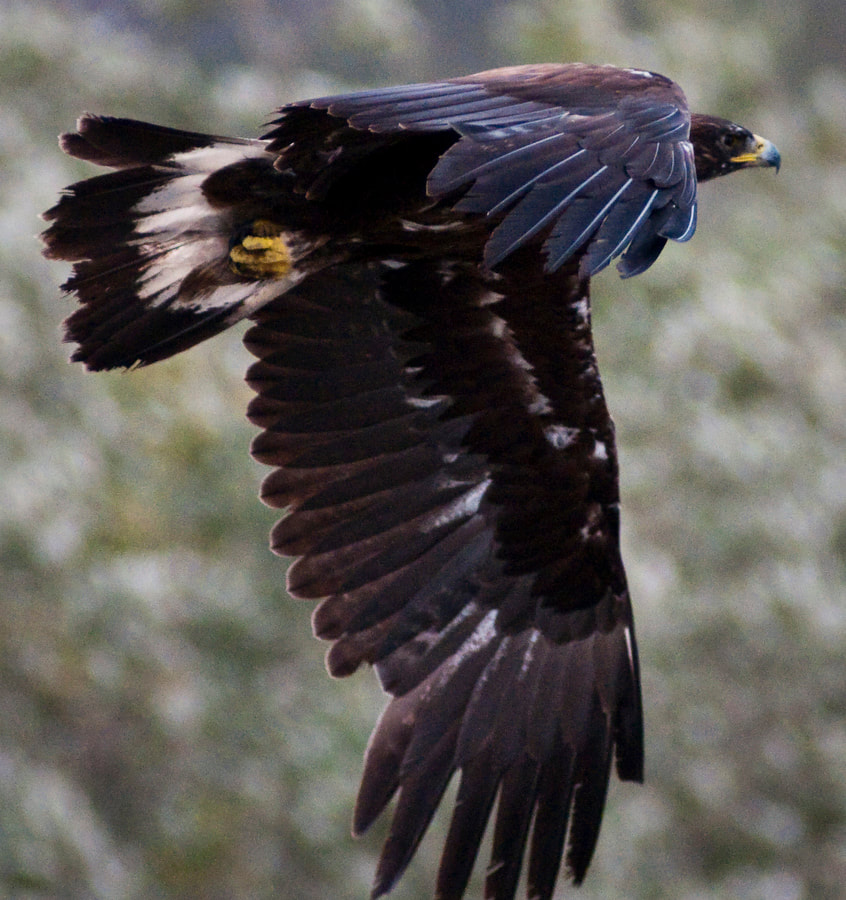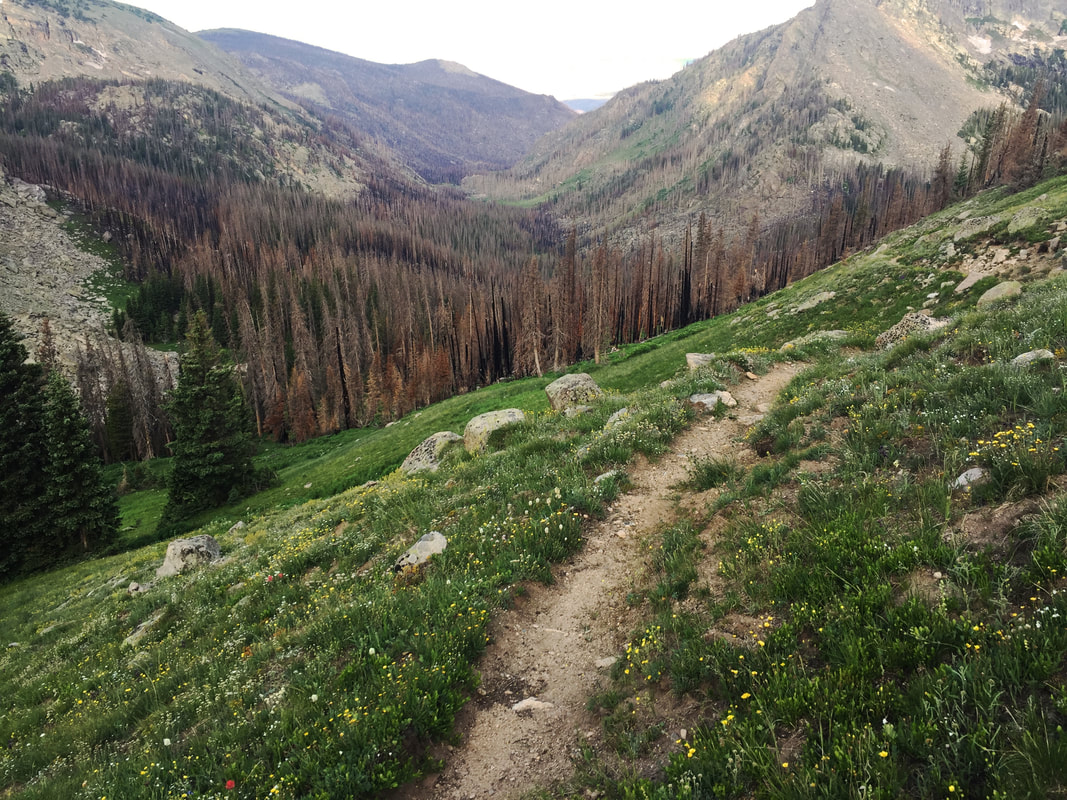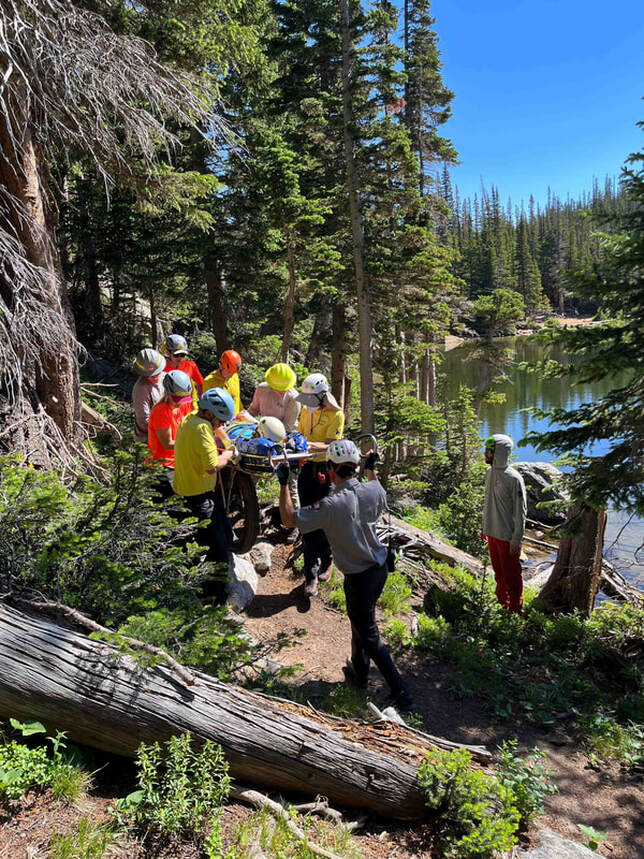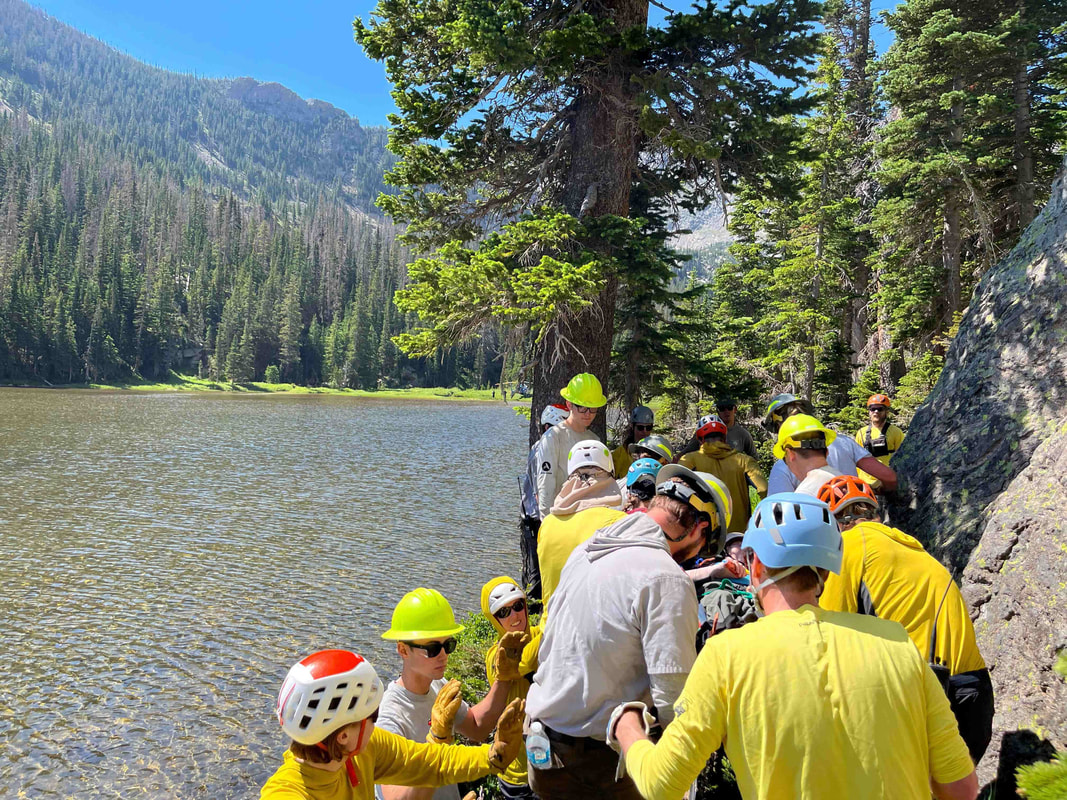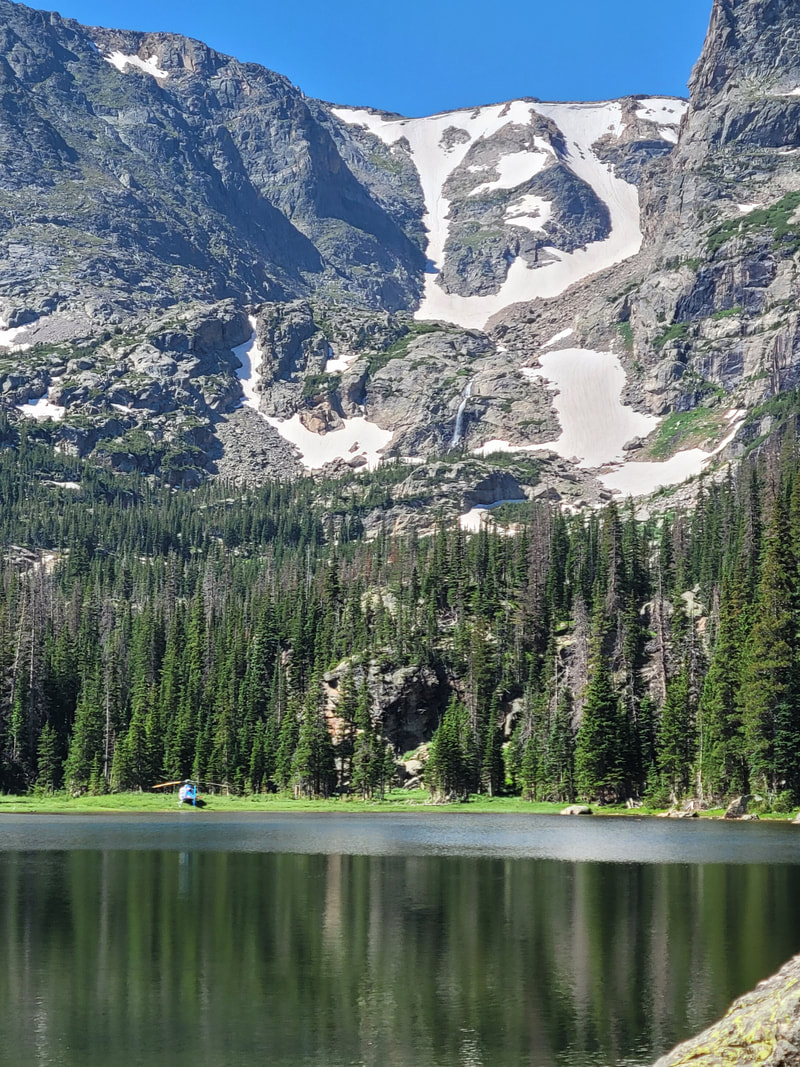|
RMNP Update - September 20, 2022 Trail Ridge Road in Rocky Mountain National Park is temporarily closed at Rainbow Curve on the east side of the park and Colorado River Trailhead on the west side of the park due to snow and ice on the road at higher elevations. Old Fall River Road has also temporarily closed.
For updated information please call the Trail Ridge Road recorded status line (970) 586-1222 and/or follow us on twitter at RockyNPS (@RockyNPS) / Twitter
0 Comments
The Saint Vrain Bridge on the Wild Basin Trail is now open to pedestrian traffic. Rocky Mountain National Park trail crews will continue working on the bridge today, putting on the hand rail, as well as early next week.
RMNP UPDATE - September 20, 2022 On Sunday, September 18, recovery operations took place for Russell Jacobs, 25, from Westminster, Colorado near the Keyhole Route on Longs Peak. Rocky Mountain National Park's Search and Rescue Team contracted with Trans Aero helicopter to assist with prepositioning park rangers and aerial recovery operations. Jacobs’ body was recovered at approximately 5 p.m. Sunday night by helicopter and transferred to the Boulder County Coroner’s Office.
Late Friday afternoon, September 16, Jacobs contacted a friend via cellular phone that he was lost and that the weather was deteriorating rapidly. Jacobs was unprepared for winter conditions or to spend an unplanned night at elevations above 13,000 feet. This information was relayed to park rangers. Park rangers were briefly able to contact Jacobs via text message to ascertain his location and learned he was going to try to move toward the Agnes Vaille Shelter. Communication with him was then lost. Members from Rocky Mountain National Park’s Search and Rescue Team began searching in the Boulder Field and Keyhole area of Longs Peak on Friday afternoon. Search efforts were hampered by accumulating snow, ice, 35 plus mile per hour winds, below freezing temperatures, night fall and bitter wind chill. Rangers were able to reach the Agnes Vaille Shelter and could not locate the subject. The search team set up shelter in the Boulder Field overnight in case the subject was still attempting to reach the trailhead. Searchers in the field reported snow and sleet continuing through the night in the search area. Search efforts were started prior to sunrise on Saturday morning. Rangers reported continued winter like conditions in the area. A clearing in the weather allowed for Northern Colorado Med Evac air ambulance to fly over the search area to look for anyone in distress while rangers continued to search in the Boulder Field. The man’s body was located approximately 80 feet above The Ledges by park visitors. The Boulder County Coroner’s office will release the cause of death. At approximately 8:50 p.m. on Thursday, September 1, 2022, Rocky Mountain National Park received a call from a visitor traveling on Trail Ridge Road who saw a vehicle off road. A small SUV with one occupant had driven off Trail Ridge Road east of Gore Range Overlook, and the vehicle came to rest approximately 500-feet down the steep slope. While the occupant was being rescued, Trail Ridge Road was temporarily closed for two hours. The occupant, a 54-year old man from Florida, walked up from the vehicle with assistance from park staff and the Estes Valley Fire Protection District and was transported out of the park by Estes Park Health ambulance. Trail Ridge Road was temporarily closed again the morning of September 2, for approximately 4 hours as park staff and Monarch Towing Company worked to extract the vehicle and all associated debris. In addition to the park's Search and Rescue team and law enforcement staff, we would like to thank partner agencies who provided key support on this incident, including the Estes Valley Fire Protection District and Estes Park Health. This incident is under investigation. No further information is available. RMNP UPDATE - September 1, 2022 Beginning on September 1, park officials will put annual closures in place for travel on foot or horse off established roadways or designated trails from 5 p.m. to 10 a.m. In 2020, the closure time extended to 10 a.m. from 7 a.m. due to a significant increase in visitors approaching elk when the morning meadow closures lifted. These closures last through October 31 and are effective in Horseshoe Park, Upper Beaver Meadows, Moraine Park, Harbison Meadow and Holzwarth Meadow in Rocky Mountain National Park.
Fishing in the Fall River, Thompson River or Colorado River within the posted areas remain the same as previous years and are closed from 5 p.m. to 7 a.m. The purpose of the closures is to prevent disturbance and harassment of elk during their fall mating period and to enhance visitor elk viewing opportunities. As always, elk calling and the use of spotlights or vehicle headlights for spotting wildlife is prohibited in Rocky Mountain National Park. RMNP Update - August 30, 2022
The Milner Pass Parking Area and trailhead will be closed to all users beginning on Wednesday, September 7, for the construction of a new vault toilet facility. This project is anticipated to be completed by mid-October, as weather and conditions permit. Located 4.3 miles west of Alpine Visitor Center along Trail Ridge Road near Poudre Lake, the Milner Pass Parking Area, as well as all access trails from this parking area, will be closed for visitor safety while this area is under construction. All visitors planning to hike on the Ute Trail and other connector trails in the area should plan to access these trails from the Alpine Visitor Center. For more information on Rocky Mountain National Park, please call the park’s Information Office at (970) 586-1206 or visit our website at www.nps.gov/romo Due to golden eagle nesting activity, closures have been extended through August 15 at Sundance Buttress, Thunder Buttress and Needle Summit in the Lumpy Ridge area. These closures include the named formations. Closures include all climbing routes, outcroppings, cliffs, faces, ascent and descent routes and climber access trails to the named rock formations. All other closures have been lifted. Check the park’s website at www.nps.gov/romo/raptor-closures.htm for maps and updated information on raptor closures.
Each year to protect raptor nesting sites, Rocky Mountain National Park officials initiate temporary closures in areas of the park. To ensure that these birds of prey can nest undisturbed, specific areas within the park are closed temporarily to public use during nesting season and monitored by wildlife managers. The closures began this year on February 15. Closures may be extended past July 31, or rescinded at an earlier date depending on nesting activity. Some routes were reopened in mid-June. The National Park Service is committed to preserving birds of prey. If nest sites are located or territorial behaviors such as aggressive divebombing/vocalizing or birds fleeing nest sites due to human disturbance are observed, please report the general location to [email protected]. The same cliffs that are critical for raptors also appeal to climbers. The cooperation of climbing organizations and individuals continues to be essential to the successful nesting of raptors in the park. For further information on Rocky Mountain National Park, please visit www.nps.gov/romo or call the park’s Information Office at (970) 586-1206. RMNP UPDATE - July 20, 2022
Park staff are adjusting the trail status of the Upper Tonahutu Creek Trail. The Upper Tonahutu Creek Trail from the junction of Onahu Trail at Tonahutu to Flattop Mountain has closed again for ongoing evaluation. The Green Mountain/Onahu Trail loop will remain open to hikers. The Green Mountain Trail remains closed to stock users. All stock users are advised to use the Onahu Trail in and out. On the west side of the park, the Sun Valley and River Trail and the Lower Tonahutu Trail (between Big Meadows and the KVC Turkey Spur Trail) remain closed to all users. In the northwest area of the park the Mirror Lake area trail system remains closed. On the east side of the park the Spruce Lake Trail remains closed. Park visitors should be aware of additional hazards when recreating in burn areas including:
For current fire information, maps and details on areas closures within RMNP, visit https://www.nps.gov/romo/learn/fire-information-and-regulations.ht RMNP UPDATE - July 11, 2022 Yesterday afternoon, Sunday, July 10, park rangers were notified that a 61-year-old male from Boulder, Colorado, had been injured in a significant tumbling fall on a snow couloir in the Ptarmigan Fingers area above Odessa Lake in Rocky Mountain National Park. It was later determined that a 59-year-old female from Boulder, also suffered injuries from a fall in the same area. Bystanders heard her calls for help and aided her. Bystanders were able to use their satellite communication devices to contact park rangers. Northern Colorado Med Evac air ambulance assisted Rocky Mountain National Park Search and Rescue team members with air reconnaissance to determine the man’s exact location. Because of the location and severity of injuries of the male, the park requested assistance from a Colorado National Guard helicopter from Buckley Air Force Base to extricate the man via a hoist operation, using a winch operated cable. Rocky Mountain Rescue assisted with the helicopter hoist operations. This occurred at approximately 8 p.m. last night. The man was flown to Upper Beaver Meadows, transferred to Northern Colorado Med Evac air ambulance, and then flown to Medical Center of the Rockies. The female also suffered serious injuries and was cared for overnight by Rocky Mountain National Park Search and Rescue team members and overnight campers at Odessa Lake. She was flown out by Northern Colorado Med Evac air ambulance this morning at approximately 11 a.m. Over 45 people were involved with this two day incident.
Several agencies assisted Rocky Mountain National Park’s Search and Rescue team with this incident including Northern Colorado Med Evac, Rocky Mountain Rescue Group, Colorado National Guard and Larimer County Search and Rescue. No further information is available at this time. RMNP UPDATE - July 5, 2022 Beginning Tuesday, July 19, through Friday, July 22, the Wild Basin Road in Rocky Mountain National Park will be closed to all uses, including vehicles, bicycles and pedestrians for road maintenance. This closure will occur at the Wild Basin Entrance Station and will include the entire two-mile section of the road to the Wild Basin Trailhead.
The park’s roads crew will be spreading gravel and grading this narrow road to address ruts, potholes and help with drainage. Due to the road being closed to all uses from July 19 through July 22, visitors should avoid this area of Rocky Mountain National Park during this time. For further information about Rocky Mountain National Park, please visit www.nps.gov/romo or call the park’s Information Office at (970) 586-1206. |
RMNP UpdatesPress Releases from Rocky Mountain National Park and the Rocky Mountain Conservancy.
Archives
September 2025
|
© Copyright 2025 Barefoot Publications, All Rights Reserved
